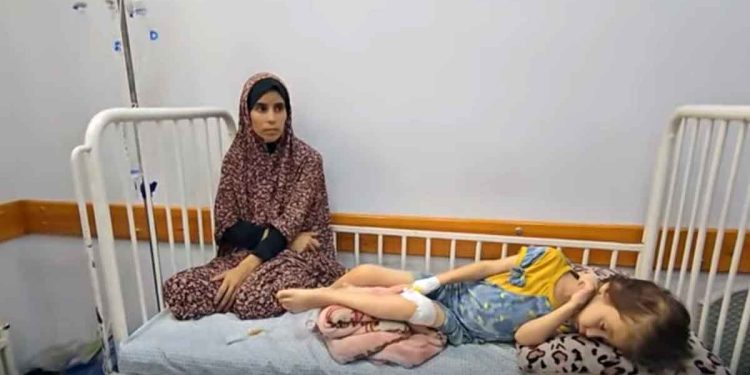The healthcare system in the Gaza Strip is teetering on the verge of complete collapse, amid a worsening shortage of medicines and medical supplies caused by the suffocating blockade imposed by the occupying power for months, and its deliberate obstruction of the entry of urgent aid to hospitals.
In this context, the Ministry of Health in Gaza warned on Tuesday that the situation had reached a “catastrophic” level, stressing that thousands of patients and the wounded face the risk of slow death as a result of being deprived of treatment and medicine.
This scene cannot be separated from the broader context of an ongoing genocide since 7 October 2023, which has so far left more than 66,055 people dead and 168,346 wounded, the majority women and children, alongside famine that has claimed the lives of hundreds of civilians, including 147 children.
At the same time, the occupation continues to target the healthcare infrastructure directly, bombing and destroying 38 hospitals and 96 primary care centres, in addition to disabling or destroying 197 ambulances, according to official local data.
The prevention of the entry of medicines and medical supplies constitutes a double crime. On the one hand, it represents collective punishment, prohibited under Article 33 of the Fourth Geneva Convention; on the other, it is a flagrant breach of the obligations of the occupying power, which under international humanitarian law is required to ensure healthcare for the protected population and not obstruct the delivery of humanitarian relief. The targeting of medical facilities and health workers further amounts to a war crime as defined in the Rome Statute of the International Criminal Court.
On a broader level, the deliberate starvation of the population, in addition to mass killings and systematic attacks on civilian infrastructure, forms the constituent elements of genocide as defined in the 1948 Convention on the Prevention and Punishment of the Crime of Genocide, which includes “causing serious bodily or mental harm to members of a national, ethnic or religious group” and “deliberately inflicting on the group conditions of life calculated to bring about its physical destruction in whole or in part.”
In light of this reality, international actors, particularly the High Contracting Parties to the Geneva Conventions, bear a legal and moral responsibility to intervene urgently to halt these violations and to ensure the safe and rapid flow of medical supplies, under penalty of accountability for complicity or negligence.
Furthermore, the continued military and political support provided to the occupation by major powers, foremost among them the United States, makes these states partners in the crimes committed in Gaza.
The situation in Gaza is no longer merely a humanitarian crisis; it is a direct test of the entire international system. Will the rules of international humanitarian law remain ink on paper, or will they be translated into binding measures that halt the ongoing crime of genocide and restore to the population their most basic rights to life and healthcare?



























